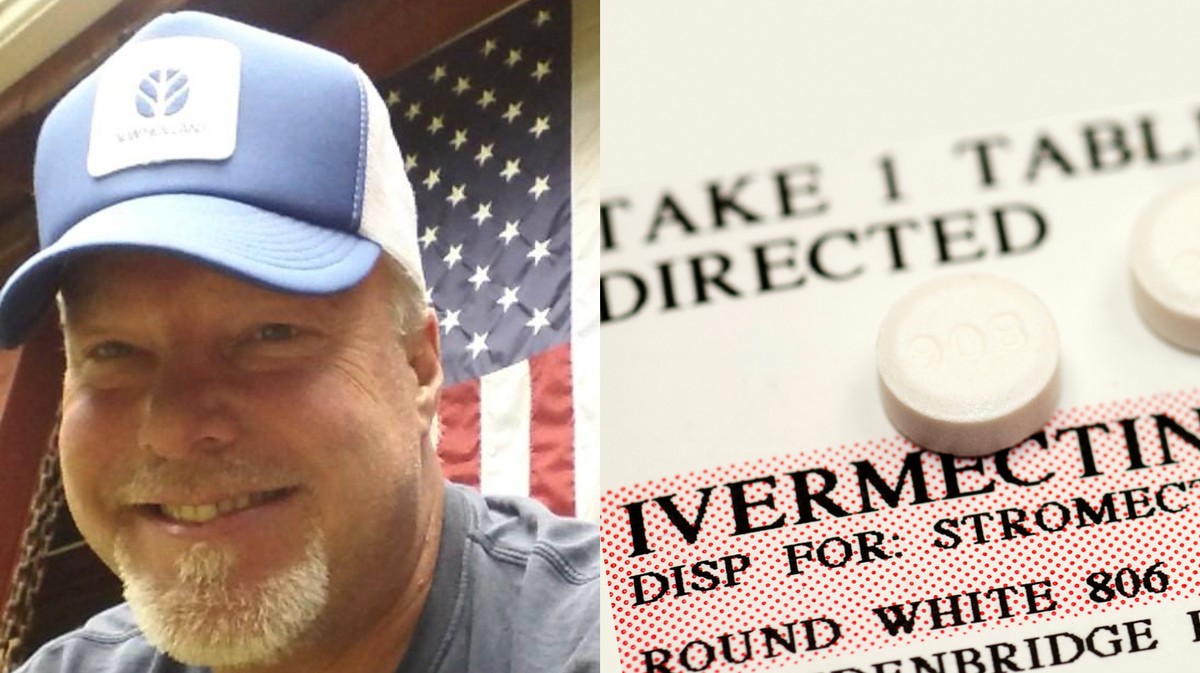There’s a little history there that you may recall.
The Branch Davidians were led by David Koresh and were headquartered at Mount Carmel Center ranch in the community of Axtell, Texas, northeast of Waco. In 1993, the federal Bureau of Alcohol, Tobacco, and Firearms (ATF) obtained a search warrant for the compound from a federal judge, as well as arrest warrants for Koresh and other members of the group. There was evidence the group was stockpiling illegal weapons and had explosive devices.
The planned execution of the search warrant was disrupted when Koresh’s brother-in-law, a mail carrier, learned of the search from a reporter who, tipped off to the search warrant, stopped him to ask for directions to the compound. By the time federal agents arrived to execute the warrant, the Branch Davidians were armed and on alert. A gunfight broke out—each side subsequently accused the other of starting it. Four ATF agents and six Branch Davidians died.
Next, there was a siege that lasted for 51 days, from February 28 to April 19. Federal agents attempted to negotiate with Koresh to end the standoff or at least to permit the children inside to leave. Koresh refused. Ultimately, then-Attorney General Janet Reno approved the use of tear gas to force the Branch Davidians out of their compound. Agents went in on April 19, 1993. The compound became engulfed in flames—how and who was responsible has been the subject of dispute.
Some of the surviving Branch Davidians insisted that they did not start the fire. But there is evidence, some of it reflected in the record from a 1995 joint hearing in Congress, that suggests they did. Arson investigators concluded that the Davidians were responsible for igniting the fire, simultaneously, in at least three different areas of the compound. Unless the fires were deliberately set, it’s extremely unlikely that they could have all started almost simultaneously like that, according to the arson cause and origin experts. One Branch Davidian stated that an FBI tank knocked over a lantern, but videotape showed that the tank struck the building shortly before the fire began. And some of the surviving Davidians’ clothing showed evidence of lighter fluid and other accelerants. There was testimony that FBI listening devices overheard the Davidians making statements like “Spread the fuel” hours before the fires began.
Despite the evidence, there has always been controversy, with Davidians claiming federal agents were responsible. ATF’s website summarizes the conclusions of a September 1993 U.S. Department of Treasury Administrative Review, which noted the dedication and commitment of the agency’s personnel while acknowledging that “the actions of law enforcement agents during the siege determined that some tactics and decisions were poorly executed; and certain actions by ATF were criticized.” And the FBI, which originally claimed it had not used any incendiary devices when it went in to assist in ending the siege, subsequently acknowledged it had used a very limited number.
By the end of the effort to end the standoff, 76 Davidians, including Koresh, 25 children, and two pregnant women, were dead.
Then-AG Reno, who came under intense scrutiny following the botched effort, stood by her decision but acknowledged errors of judgment.
She said, “One of the truths that we will never be able to get to is what was the right thing to do, because we don’t know whether David Koresh would have done it two weeks later on his own without any provocation. And we would have been blamed for not acting.”
According to an agent who participated in efforts to end the siege, Koresh was not a white supremacist—there were Black members of the Branch Davidians. Koresh, who had claimed the sole right to have sex with women and girls over the age of 12 in the compound, as well as to have the only air-conditioning unit on the ranch, was characterized as “a sociopath, a user, a manipulator and a false God; a pedophile who ultimately murdered federal agents.” But Koresh was vehemently anti-government, something he shared with white nationalists. That was what those groups seized on after the fact. Koresh wanted to stockpile illegal weapons and dictate the conditions under which the people on the compound lived, and he did not want the government to interfere. Tellingly, he told a negotiator during the siege that he had named the compound “Ranch Apocalypse” before the search warrant was ever served.
Over the past three decades, Waco has become a touchstone for far-right anti-government, Christian-nationalist white supremacists who likely know little about the Branch Davidians and their motivations. And here is Trump, holding a rally on their sacred ground to launch his 2024 campaign right in the middle of the 30th anniversary of the siege. Going to Waco sends a clear message to anti-government groups, and it should send one to the rest of us as well. It’s too important to miss. Trump is willing to embrace far-right extremism, and everything it brings along with it, to restore himself to power.
That means embracing violence. Only two years after Waco, on April 19, 1995, Timothy McVeigh bombed the Alfred P. Murrah Federal Building in Oklahoma City, leaving 168 people, including 19 children at an on-site day care, dead and more than 500 people injured. McVeigh acknowledged before his death that he set off the Oklahoma City bomb in retribution for Waco and another incident, Ruby Ridge, where U.S. marshals attempted to arrest Randy Weaver, an anti-government defendant who had failed to show up for trial on weapons charges, leading to a standoff in which a federal agent and members of Weaver’s family were killed.
McVeigh was not alone. Waco has become a permanent part of the mythology of American white supremacist groups. It is embedded in the ideology of militia groups like the Proud Boys and the Oath Keepers. Alex Jones, who notoriously promoted fake claims about the deaths of children at Sandy Hook, has also fanned the flames of Waco. Trump crony Roger Stone dedicated one of his books,
The Clintons’ War on Women, to the Branch Davidians who died at Mount Carmel.
I asked my former boss, Alabama’s former Senator Doug Jones, who prosecuted members of the KKK responsible for the racially motivated 1963 bombing at 16th Street Baptist church in Birmingham, Alabama, that killed four young girls, about Trump’s upcoming rally. I asked if he was concerned about what Trump’s appearance in Waco during the 30th anniversary of the siege could encourage groups or individuals to do, since Waco has taken on major significance for people in anti-government movements and militia groups. “Of course,” he told me. “Trump is the master of dog whistles, whether it is his rhetoric or photo ops. Waco is a wonderful city, but for the far-right fringe that Trump caters to, an appearance by Trump can be a call to arms. Not action—arms.”
Trump’s most recent public pronouncements show he is as careless as ever about the risk of inciting violence, almost to the point where the only logical conclusion is that he is comfortable with it. He posted overnight Thursday on his Truth Social site that “potential death and destruction” would be the result if Manhattan district attorney Alvin Bragg indicted him. Bragg received a death threat in a letter containing white powder later in the day. Trump also posted a photo of himself swinging a baseball bat in the direction of an adjacent photo of Bragg’s head, a wordless expression of violent intent, that could be passed off, if necessary, as some sort of joke in bad taste. If Trump has learned any lessons from January 6 and his ability to rally his supporters to violence, they are the wrong ones.
Donald Trump’s niece Mary Trump has a unique vantage point for assessing what the choice of Waco for his opening rally might signal. She has a PhD in clinical psychology and, before his presidency, when they parted ways, the unique access to observe her uncle that only family members have. I asked Mary whether the former president’s decision to go to Waco for his first rally in the 2024 campaign could be just a coincidence. This was her response:
“It’s clear to me that the decision to hold Donald’s next rally in Waco, TX, during the 30th anniversary of the FBI siege of the Branch Davidian compound is entirely intentional. I doubt it was Donald’s idea—more likely Stephen Miller or somebody of his ilk made the connection. I think this is a signal that they don’t have to hide anything anymore. Much like David Koresh and his followers, Donald and his followers are an apocalyptic, anti-government cult. And they’re coming for us.
“The pattern has been established over decades—Donald pushes the envelope, his transgressions are overlooked, he pushes the envelope further. This week, after he manipulated the entirety of the American media to do his bidding, Donald took to social media to warn of widespread violence if the rule of law were upheld and he was finally, at long last, indicted. He used vile racist and anti-Semitic tropes and charged images to threaten the life of the New York District Attorney who dares hold him accountable—according to the law. Openly declaring war on the government he hopes once again to lead by appealing to the most violent, self-destructive instincts of those who continue to enable him is the next logical step.”
Those are strong words. But we are living in an era where it’s important to consider the strong words and the warnings that are being issued by people who understand the risks of would-be authoritarians. We lived through January 6 and saw evidence of what the former president is capable of with our own eyes. There is no reason to believe that now, cornered by the legal system, he will be any less willing to summon a mob to save him than he was after losing the 2020 election, when he hoped he could find a way to hold onto power.
Waco is a dark tale. It’s important for us to understand what it means for Trump to go there today. It’s not the sort of thing that should be brushed off as Trump being Trump. His presence will hold meaning for people who can be moved to action by it, just like the Proud Boys heard Trump’s call during the 2020 presidential debates to “stand back and stand by” as a call to future action. There is risk in tomorrow’s rally. That risk will continue as long as Trump remains on the public stage. It’s more important than ever that he be held accountable, both by the criminal justice system and by the voting public.
Why is Donald Trump holding the first rally of his 2024 campaign in Waco, Texas, on Saturday? There’s a little history there that you may recall. The Branch Davidians were led by David Koresh and were headquartered at Mount Carmel Center ranch in the community of Axtell, Texas, northeast of...

joycevance.substack.com

 www.vice.com
www.vice.com



